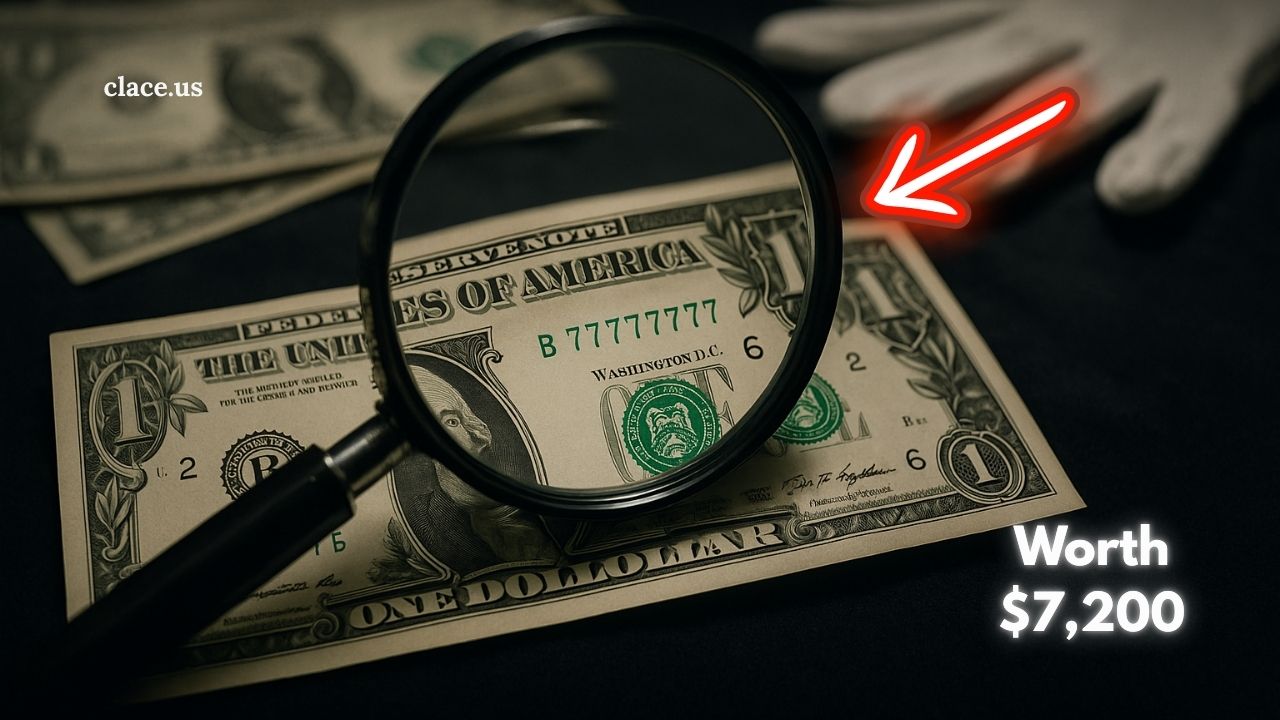$1 Bill With Rare Serial Number Just Sold For $7,200 – Check Your Wallet Now
Most people think of a $1 bill as nothing more than pocket change. But recently, one such bill shocked collectors when it sold for a massive $7,200. The reason? Its rare serial number. This story highlights how ordinary-looking money can sometimes turn into extraordinary treasure.
Let’s break down the details, why this bill became so valuable, and how you can check if you’re holding a similar hidden gem.
What Made This $1 Bill So Special?
The sold bill wasn’t just another dollar. It belonged to a series known for printing errors and was marked with a star note—a small star symbol beside the serial number that already makes it collectible.
But what pushed it into the thousands was the fact that it had a duplicate serial number, something that almost never happens in U.S. currency.
This duplication occurred when bills were printed in two different facilities, leading to pairs of notes with identical numbers. Finding both bills from such a pair is nearly impossible, which is why collectors jumped at the chance to secure one.
Key Facts About the $1 Bill Sale
| Feature | Details |
|---|---|
| Bill Type | $1 Star Note |
| Series | 2013 |
| Error Type | Duplicate Serial Numbers |
| Known Matches | Extremely few – only a handful documented |
| Auction Sale Price | $7,200 |
| Why Valuable | Combination of error, rarity, and star designation |
Why Do Rare Serial Numbers Matter?
Currency collectors, also known as numismatists, pay close attention to serial number patterns. Some of the most desirable include:
- Star Notes – Replacement bills with a star symbol.
- Low Numbers – Serial numbers like 00000001 or 00000123.
- Radar Notes – Numbers that read the same forwards and backwards.
- Repeating Digits – Patterns like 77777777 or 12121212.
- Ladder Notes – Perfect sequences like 12345678.
The sold bill combined two powerful features: star status and a duplicate serial number error, making it a rare jackpot.
How Rare Is This Error?
When the printing mistake occurred, millions of bills entered circulation. However, the chances of finding both matching bills from different print runs are incredibly slim.
Only a tiny number of matched pairs have been discovered so far, and collectors are constantly searching for more. That scarcity is what drives up the value—making each discovery headline-worthy.
Why Collectors Paid $7,200
Several factors explain why this $1 bill reached such a high price:
- Unique Printing Error – Duplicate serial numbers are a known rarity.
- Star Note Status – Collectors prize star notes more than standard bills.
- Condition – The bill was in high-grade condition, further raising its worth.
- Market Demand – With only a handful of such pairs existing, serious collectors competed fiercely to own it.
How to Check If Your $1 Bill Is Valuable
If you want to know whether the money in your wallet is worth more than face value, here are steps you can take:
- Look for the Star – Check if your bill’s serial number ends with a star.
- Check Patterns – See if the digits form sequences, repeats, or palindromes.
- Inspect Serial Numbers – Compare with online collector forums to see if a matching duplicate is recorded.
- Check Condition – Crisp, uncirculated bills are always worth more.
- Seek Professional Grading – Services like PMG or PCGS can officially certify your bill’s condition and rarity.
This incredible sale proves that even a simple $1 bill can turn into thousands of dollars if it carries the right features.
The $7,200 star note with a rare serial number is a reminder to check your wallet and pay closer attention to the money you handle daily. With billions of bills in circulation, treasures could be hiding in plain sight, just waiting to be discovered.
FAQs
No. While star notes are more collectible than regular bills, only those with unique errors or rare serial numbers can fetch very high prices.
Check for patterns like ladders, radars, repeats, or very low numbers. Also, look for star notes, as they are more sought-after.
Keep it safe, avoid folding it, and consider sending it to a grading service to verify its authenticity and condition before selling.
